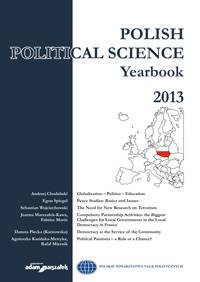WHY THE CULTURAL IDENTITIES OF THE INDIGENOUS PEOPLES OF THE ARCTIC ARE MORE ENDANGERED THAN THEY SEEM
WHY THE CULTURAL IDENTITIES OF THE INDIGENOUS PEOPLES OF THE ARCTIC ARE MORE ENDANGERED THAN THEY SEEM
Author(s): Krzysztof KaczmarekSubject(s): Environmental Geography, Environmental and Energy policy, Politics and society, Environmental interactions
Published by: Wydawnictwo Adam Marszałek
Keywords: cultural identity;Arctic;indigenous people;global warming
Summary/Abstract: Global warming is a fact. The reason for this can only be a guess. There are hypotheses claiming that the climate changes are consequences of human activities. Other hypotheses say that such occurrences appear regularly every few thousand years. As early as the beginning of the twentieth century some scientists noticed indicators of the growth of the global average temperature. Regardless of the reason global warming is observable mostly in polar areas. Nowadays about four million people live in the Arctic including native inhabitants. Global warming impacts on all of these including indigenous peoples of the Arctic whose cultural identities have always been related to nature. They have always lived in harmony together with nature, they have been a part of it and have never tried to fight against it. A changing climate can make them give up the way their ancestors used to live. Afterwards it can cause the disappearance of their languages and cultures that languages are parts of. Besides for many decades all indigenous people had been thought to be at a lower development level than new arrivals so today almost all languages spoken by indigenous peoples of the Arctic are endangered. All indigenous peoples of the Arctic have common points in their histories like deprivation of lands and suppression of languages and traditions. Most of their ancient customs and religions are forgotten but there are many material marks that are important for future generations. It is very important to preserve the marks and the knowledge of their languages because the value of them is priceless. Today native inhabitants of the Arctic live in countries with various law regulations so their situation is different in each country. Some of them have some autonomy, but others still seek it.
Journal: Polish Political Science Yearbook
- Issue Year: 42/2013
- Issue No: 1
- Page Range: 213-217
- Page Count: 5
- Language: English

